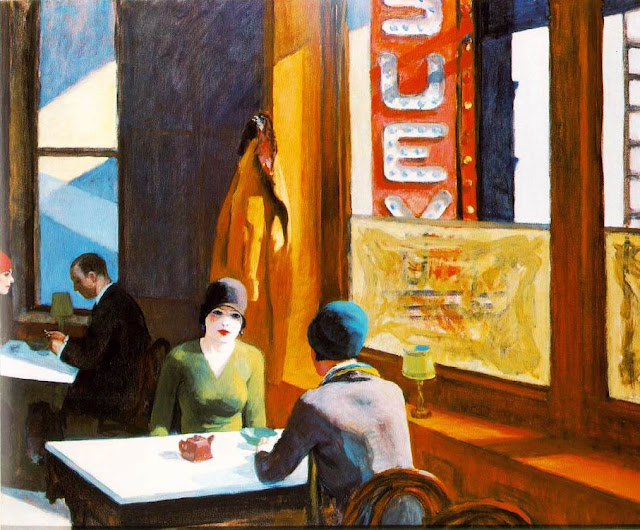How to Read About the Coronavirus Without Going Crazy
 |
| Gilles Sabrié for The New York Times |
The coronavirus is everywhere, and not just in the scary virus sense -- it now looms over social media platforms, cable news, sports, and conversation. This cultural dominance is challenging if you want to stay somewhat up-to-date but not go crazy.
The time I've spent on social media platforms over the last month, particularly on Facebook, has been genuinely terrifying. Friends, close and otherwise, have shared a metric ton of articles, opinions, memes, and pyramid schemes. These range from insightful to helpful to speculative to foolish to full-on, unpasteurized crazy. If you're in isolation with nothing to do but feed your anxiety, social media is a toxic soup of confusion. Very Smart People aren't sure what has happened, what is happening, or what will happen. They also are unsure about what should be done about it. So, unfortunately, your old high school friend is unlikely to be sharing really incisive commentary.
Several of my students have asked me what they should be reading to keep up with daily or weekly developments. The goal: non-partisan commentary that rejects simple or tribalist narratives without being contrarian for its own sake. Given the complexity of the virus and its effects, it is also really important to read people who disagree with each other and aren't tied to any one narrative. It's also important to avoid reflexive headline-checking in favor of more edifying reflections about our current predicament (which, in many senses, has always been our predicament).
My recommendations, in brief:
As a daily news feed to stay somewhat abreast of world developments:
My recommendations, in brief:
As a daily news feed to stay somewhat abreast of world developments:
- Instead of any single social media platform, I've tried to limit my social media consumption to one very targeted Twitter list that has a variety of ideological backgrounds and is cross-disciplinary.
- RealClearWorld and RealClearPolitics are (mostly) aggregation sites that will link to all varieties of nonsense but very quickly and clearly show the headlines from all across the ideological plane.
- I've found, over and over again, that the Atlantic is putting out the most thoughtful coverage of the virus. I'd especially highlight the work so far of Derek Thompson, Zeynep Tufekci, and Ed Yong (author of the article to read if you are only reading one article).
- FiveThirtyEight helpfully summarizes the vast array of variables that confuse any picture of the virus' likely spread: "Why It's So Freaking Hard to Make a Good COVID-19 Model"
- Tom Chivers explains why each of these variables is so hard to calculate by picking one, "death rate," and explaining the vast array of possible infection fatality rates: "How Likely Are You to Die of Coronvirus?"
- Brad Littlejohn rejects "sentimentalist" and "utilitarian" responses to the moral choices the virus requires of us.
- Philosophy prof Adam Pelser explores the way a pandemic undresses the Western obsession with individual rights and pushes us towards virtues like gratitude and generosity: "A world where we all demand our rights and only help solve those problems for which we were personally responsible is a cold world indeed."
- Bruno Maçães writes about American escapism, discussing media coverage that treats this pandemic as an episode in a reality TV show. Each American tribe has so easily and so seamlessly integrated the pandemic into their preferred larger narrative for the country.
- Ross Douthat examines the fissures in "conservative" ideologies that the plague has exposed.
- I can't recommend enough Carl Trueman's reflection on America's fear of death. As Trueman has written before (my paraphrase), if Victorian England was obsessed with death and terrified of sex, we are obsessed with sex and terrified of death.
- Leah Libresco Sargeant compares the choices of Kristin Lavransdatter to ours.
- Peter Leithart and L.M. Sacasas both discuss why we are unnerved by the dismantling of man's systems for controlling the universe.
- Tyler Cowen has been writing about America’s stagnating economy and culture for a decade. This short video series, made in 2018, summarizes his theory and ends with an eerie warning that the next great American crisis may expose our rotting public and private institutions. Cowen calls this “The Great Reset,” and fears it may be painful but helpfully transformative.
- Ross Douthat summarizes his book, The Decadent Society, here. It argues that America In short: Aesthetically and intellectually [decadence] hints at exhaustion, finality — “the feeling, at once oppressive and exalting, of being the last in a series,” in the words of the Russian poet Vyacheslav Ivanov. [...] Following in the footsteps of the great cultural critic Jacques Barzun, we can say that decadence refers to economic stagnation, institutional decay and cultural and intellectual exhaustion at a high level of material prosperity and technological development. Under decadence, Barzun wrote, “The forms of art as of life seem exhausted, the stages of development have been run through. Institutions function painfully. Repetition and frustration are the intolerable result.” He added, “When people accept futility and the absurd as normal, the culture is decadent.” And crucially, the stagnation is often a consequence of previous development: The decadent society is, by definition, a victim of its own success.
- Cowen and Douthat spoke about the book here. It’s difficult to say if they were lucky or prescient, but they were one of those two.

Comments
Post a Comment